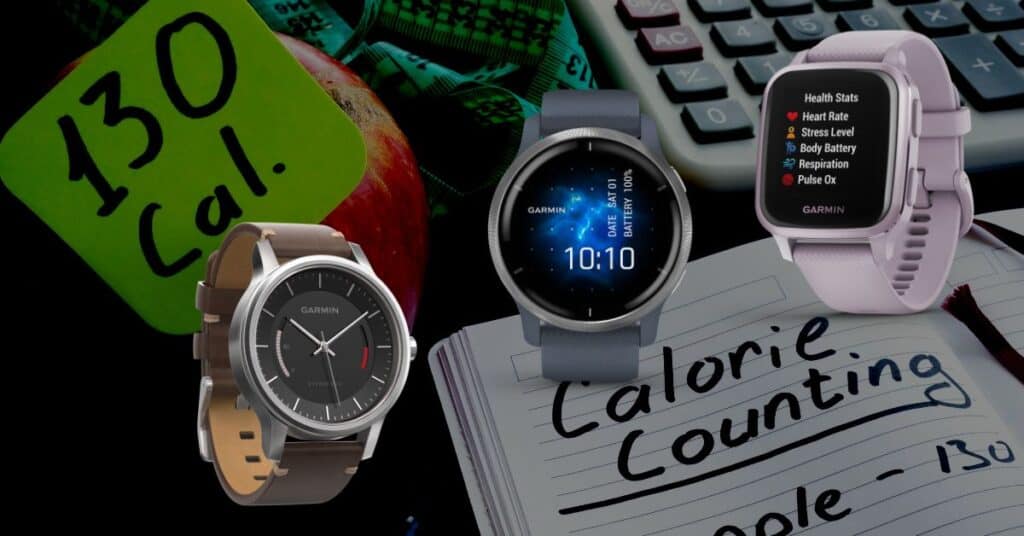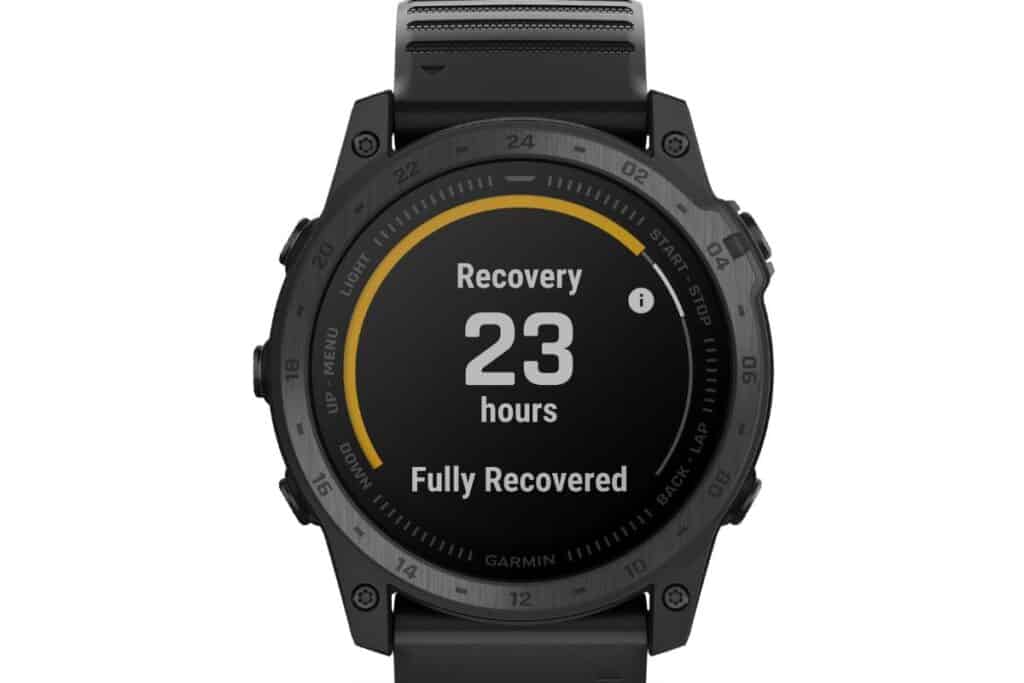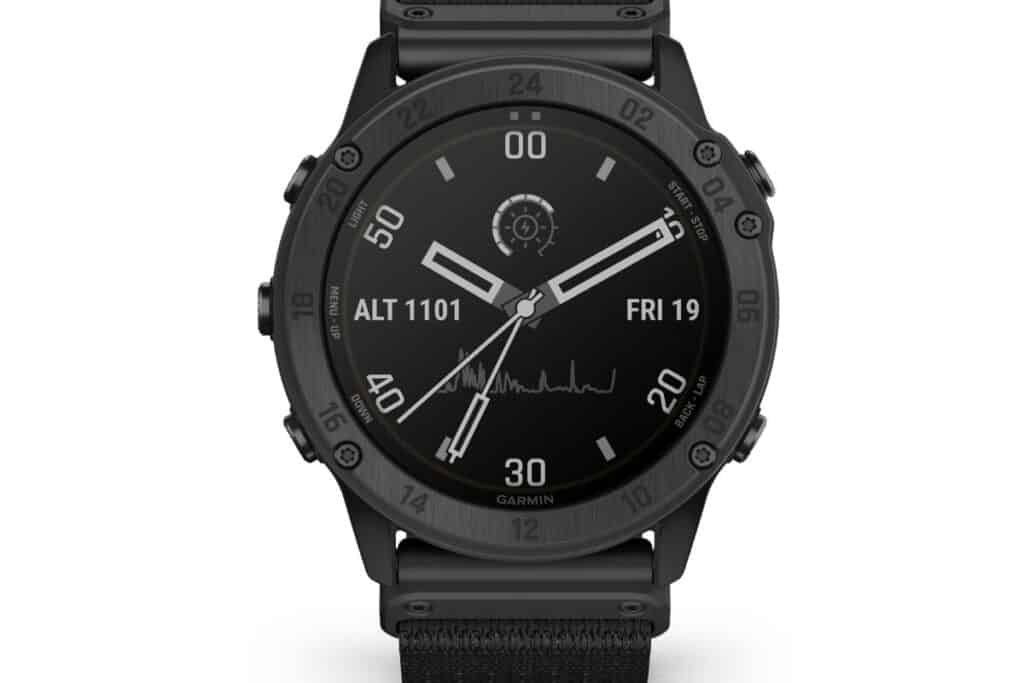Calorie Count on Garmin Watches: How Accurate Are They
If you are a fitness enthusiast and considering buying a Garmin, you need to know the answer to the question, ‘how accurate is Garmin watch calorie count?’

Garmin watches are renowned for their accuracy when it comes to calorie counts. Garmin watches use advanced algorithms and sensors to measure the number of calories burned during physical activity accurately.
I have lost weight, gained muscle, and done so much on my own and with renowned experts in the field. So now, I am analyzing the Garmin Watch Calorie Count, something that many experts swear by.
How Accurate Is Garmin Watch Calorie Count?
Garmin watches are renowned for their accuracy when it comes to calorie counts. They use advanced algorithms and sensors to measure the number of calories burned during physical activity accurately.
Their internal sensors track your heart rate, movement, and other data points to estimate how many calories you have burned accurately. Garmin also takes into account things like body weight, height, age, the intensity level of the activity, and even gender when calculating your caloric expenditure.
This means that their watch can deliver a much more detailed reading than most other fitness tracking devices on the market today. The accuracy of Garmin watches calorie counts is further enhanced by its integration with Garmin Connect™, providing users with personalized insights based on individual user data.
Through Garmin Connect™, users can sync their data between the watch and web or mobile platforms. This allows for real-time tracking of calories burned during physical activity, making it easier to stay on top of your calorie intake and expenditure goals.

Garmin watches are also beneficial in keeping track of your dietary intake. With features such as food logging, meal planning, and nutrition analysis, Garmin watches help you accurately record what goes into your body to manage your caloric goals better.
Integrating food databases from sources such as MyFitnessPal and Fooducate helps ensure accuracy in calorie counts for items for which you may not have nutritional information available.
You can say that Garmin watches offer an excellent way to track and monitor your caloric intake and expenditure. With its advanced algorithms and sensors, as well as its customizable data tracking feature via Garmin Connect™, you can rest assured that the calorie count you receive is an accurate one.
Whether you are looking for a way to keep tabs on your diet or want to stay motivated toward your fitness goals, Garmin watches are worth considering (almost indefinitely).
How Calorie Measurement Works On Garmin Fitness Devices
Garmin fitness devices use sophisticated algorithms to measure the number of calories burned during exercise. This technology is based on many different factors, such as heart rate, weight, age, and gender.
Heart rate is crucial in calorie measurement because it indicates how hard you work. The higher your heart rate, the more calories you burn.
Garmin fitness devices monitor your pulse throughout the exercise and use this information to calculate the total amount of calories burned during that activity. Other factors that affect calorie measurement include weight and body composition.
A heavier person will generally burn more calories than someone who is lighter for the same activity. Body composition also contributes to calorie calculation; leaner people may require more energy to perform certain activities than those with higher body fat percentages.
Age and gender are also taken into account when measuring calories burned. Generally, younger people burn more calories than older people because of the differences in muscle mass and metabolism between the two age groups.
Women usually require fewer calories to perform an activity than men due to their lower testosterone levels, which helps build muscle mass.

Garmin fitness devices use these combined factors to track your calorie expenditure during exercise, allowing you to monitor your progress and make changes as needed to reach your goals.
This technology provides a comprehensive overview of how many calories you are burning on a daily basis so that you can stay motivated and make the necessary lifestyle adjustments for achieving optimal physical health.
What To Do If The Burned Calories Calculated On Your Garmin Device Are Wrong?
If the burned calories displayed on your Garmin device are not proving to be accurate, you may need to review and adjust your settings. Checking and resetting your stride length is an excellent place to start, as it can often be off from the default setting which came with your watch.
You can also check to ensure that your weight is inputted correctly so that the calorie count is based on accurate body mass information.
If you are using a heart rate monitor with your Garmin device for calculating burned calories, it is crucial to ensure that chest strap placement and tightness are correct to get an accurate reading of your heart rate.
Tighten the chest strap until it fits securely around your torso, and make sure you wear it high enough on your chest so that it lines up correctly with the sensor. It would be best if you also considered enabling the Activity Tracking feature on your Garmin device, which allows for more accurate calorie tracking by gathering data such as:
- Steps taken,
- Floors climbed, and
- Even time spent sedentary or
- Active during a specific activity.
This feature can help provide a better understanding of how many calories you have actually burned throughout the day or in a given activity.
Finally, suppose after making all these adjustments, you still feel that the calories being calculated are not accurate enough to be meaningful to you. In that case, you should consider switching to another type of fitness tracker that uses different technology for tracking burned calories.
There are a variety of fitness trackers that use different tracking methods for calculating burned calories, such as accelerometer technology or even the ability to input your exact activity into the device.
No matter which type of fitness tracker you choose to use, it is vital to make sure you understand how it works so that you can make any necessary adjustments in order to get an accurate read on burned calories.
Proper setup and maintenance are critical when using a Garmin device or any other type of fitness tracker so that you can be confident in the accuracy of your calorie burn data.
Key Takeaways
- Garmin watches are highly accurate in assessing calorie counts.
- They use advanced algorithms and sensors to calculate it.
- Their internal sensors track your heart rate, movement, and more.
- They use sophisticated algorithms for their measurements.
- If your results are inaccurate, you may need to adjust the settings.
